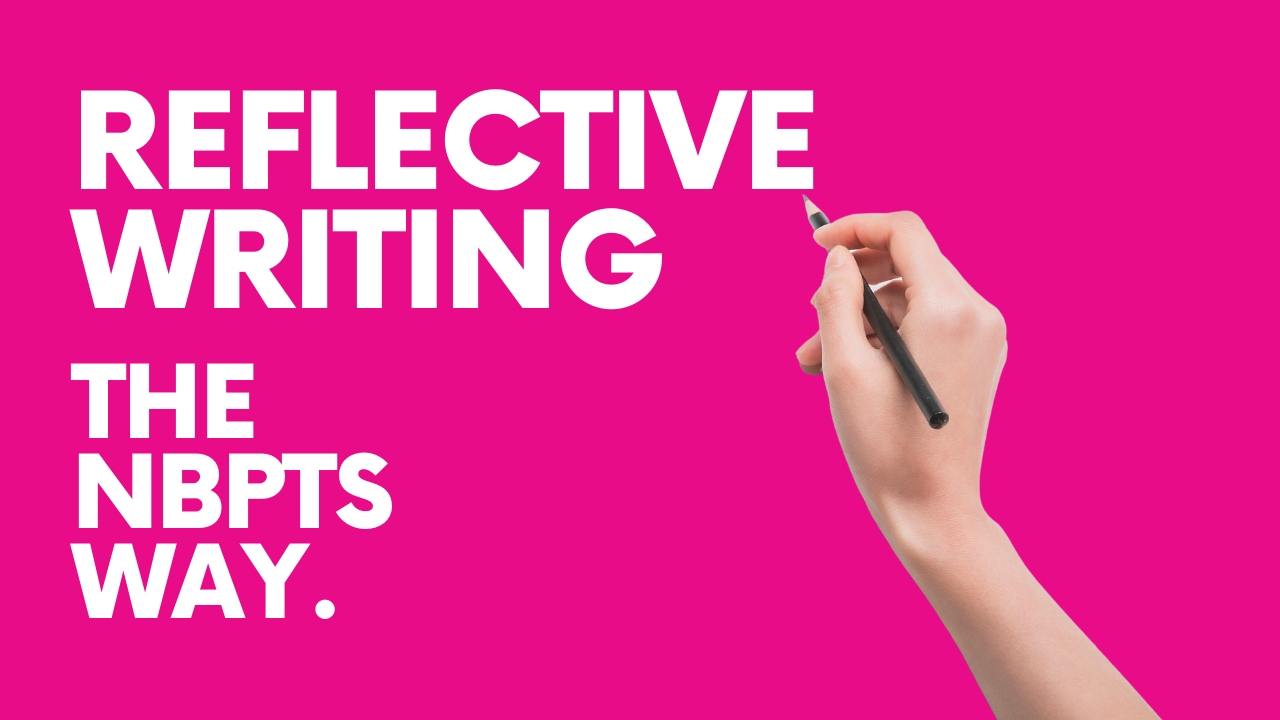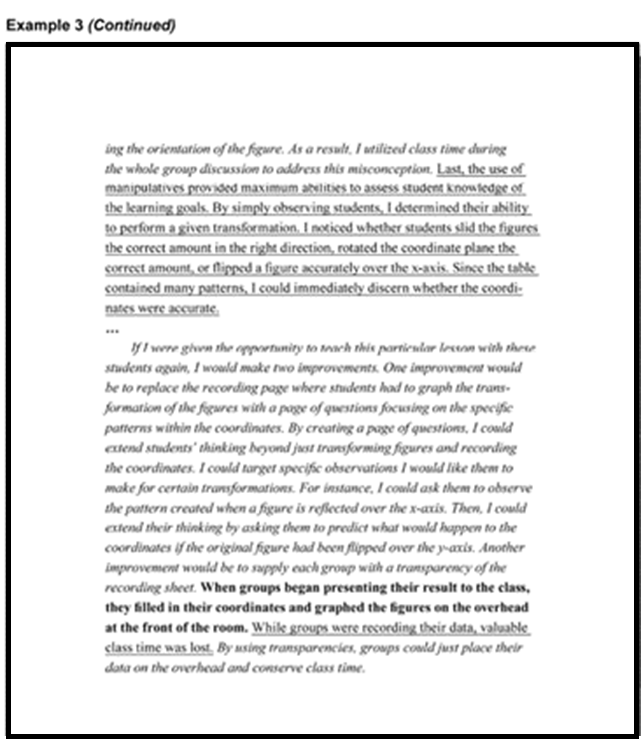
Reflective Writing for NBPTS Portfolio Success
Dec 04, 2019In this post I will be discussing the third and final writing style that will prove your ability to reflect on your teaching and students’ learning in a deep and meaningful way. This writing style will show convincing evidence to prove your ability to significantly impact student learning through your practice.
In Components 1 and 2, reflective writing is used as a “thought process” that must be engaged in after each teaching or growth experience. Through your reflection, you will determine how you would approach similar situations in the future and what changes you would likely make to improve the experience for your learners. This reflective writing is extremely important for the assessor to understand how you will use what you have learned from your lessons and PGEs to inform and improve your teaching in the future.
I know what you are saying now, how do I know the difference in whether the NBPTS wants me to write analytically or reflectively. As noted in the Maintenance of Certification instruction manual provided by the NBPTS, “Analysis involves interpretation and examination of why the elements or events that are described are the way they are, while reflection always suggests self-analysis, or retrospective consideration, of your practice.”
Important things to remember about reflective writing in the National Board Renewal Process:
- How would you handle these lessons or professional growth experiences in the future? What might you add to them? What would you not do again?
- Your reflection will be evidence of how you make decisions.
- Your reflective writing will portray your self-analysis and retrospective skills.
- The focus should be on answering why and how questions.
Join the MOC #GetItDone Bootcamp for a complete walk through of the different writing styles for NBPTS and a copy of your very own analytical and reflective Stems.
Here is the end of example 3 of reflective writing (italicized text) given in the NBPTS general portfolio instructions.


